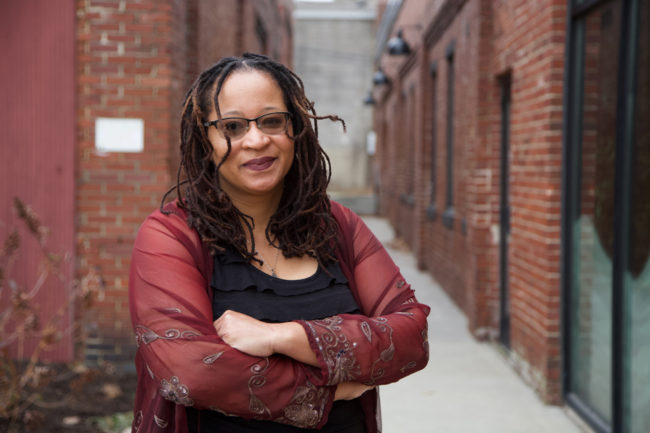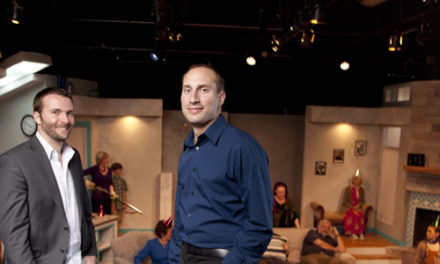
by TRACY ZOLLINGER TURNER
Jacinda Townsend is a novelist, a software trainer, and a Monroe County Community School Corporation board member. She’s also a Harvard University graduate with a law degree from Duke University and an M.F.A. from the Iowa Writers’ Workshop. Her 2014 debut novel, Saint Monkey (W.W. Norton & Company), won national awards and critical acclaim. Her second novel, Kif, which was inspired by interviews with former slaves from Mauritania that she conducted for a story for Al- Jazeera, will be out in 2022. Ask her what she thinks is important to know about who she is, and she’ll tell you: “I’m a single mom and I like to go to the desert.”
In non-pandemic times, Townsend takes regular trips to Morocco—including trips to the Sahara— with her daughters Rio, 16, and Fadzai, 11. “I wanted my girls to grow up seeing me be independent and empowered,” she says. “We do not go in a luxurious fashion. They are tough, tough girls, and the thing I am the most proud of is being that mom.”
Townsend grew up in Bowling Green, Kentucky. Her mother is a high school teacher, so she’s always “been very invested in public education,” which is part of the reason she felt called to apply for a vacancy on the school board in early 2020, then run to remain in office.
“There were some things in the district that troubled me a lot,” she says. “One is the segregation. We have schools with almost no free lunch recipients and then we have schools where almost everybody gets free lunch. We have schools with almost no Black population, and then we have a school with a 28% Black population, which, in a town of 4%, is way too high. There’s a huge racial disparity in discipline statistics. Black kids in this district are overidentified for special ed and underidentified for ALPS [Accelerated Learning Program for Students].”
Calling herself a “Bernie bro,” Townsend had hoped for more sweeping reforms on a national level than she expects to see from Joe Biden and Kamala Harris. But she feels that recent shifts on the school board may make meaningful change possible on the local level. “We as a board, historically, have always given a lot of lip service to what we’re going to do about inequity, but there’s never been a clear timetable,” she says. “Now I have hope that we can begin to think about matters of equity in a much more concrete way so that we can stop just talking about it.”














